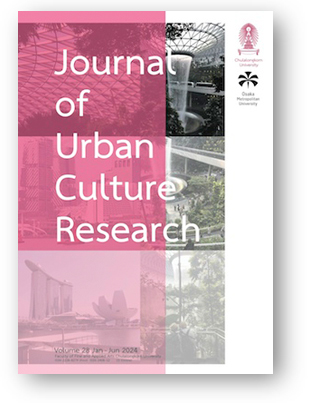Key Indicators for Effective Implementation of Smart City Standards in Indonesia During the Covid-19 Pandemic: A Case Study of Four Cities
DOI:
https://doi.org/10.14456/jucr.2024.1Keywords:
COVID-19 Pandemic; Smart City; Health Protocols; Urban Environment; Urban Sustainability; IndonesiaAbstract
Resources management owned by smart cities in Indonesia must be effective and efficient because the concept of urban development is based on information technology principles application. To ensure the environment is safe for human health is necessary to apply standards. SNI ISO 37122 implementation has affected the effectiveness of health protocols. Indicators in the standard are arranged to detect the COVID-19 control spread and prevention. The linkage of indicators and health protocols resulted in the indicators scoring that affected the pandemic spread. The indicator's data is obtained from personal authority guided by a questionnaire. This research contains evidence of the smart city policy of the pandemic spreading in cities. Effected indicators are decided involving the expert's judgment. Jakarta is one leading cities that has implemented the indicators and has the lowest pandemic ferocity, as proven by its low IFR and CFR values. This research might be a guide for policymakers to adopt.
Downloads
Published
Versions
- 2024-07-07 (2)
- 2024-06-24 (1)
How to Cite
Issue
Section
License

This work is licensed under a Creative Commons Attribution-NonCommercial-NoDerivatives 4.0 International License.
Authors authorize the JUCR to publish their materials both in print and online while retaining their full individual copyright. The copyright of JUCR volumes is retained by Chulalongkorn University.
The views and opinions expressed herein are those of the individual author(s) and do not necessarily reflect the policies or opinions of the Journal (JUCR), it editors and staff, Chulalongkorn University, or Osaka Metropolitan University.








